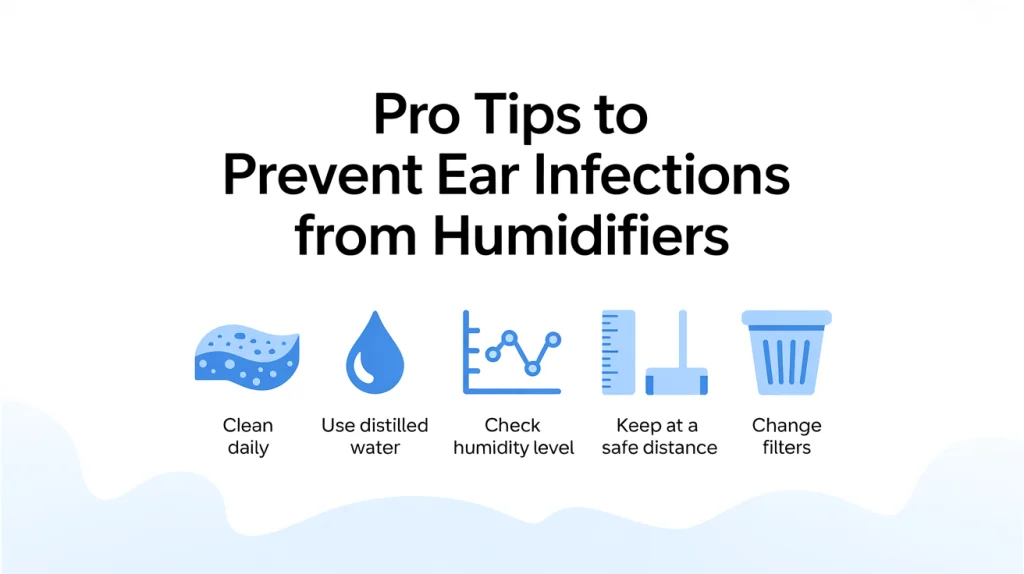Can Humidifier Cause Ear Infection? Myth or Fact
A humidifier is a useful device that adds moisture to the air and helps with dry skin, allergies, cough, and even better sleep. But some people wonder: can a humidifier cause ear infection? The short answer is yes, in certain cases, but it usually depends on how the humidifier is used and maintained.
Let’s explore this in detail.
How Humidifiers Work
- A humidifier releases water vapor into the air to increase indoor humidity.
- It helps balance dry air, especially in winter or when heaters are used.
- When used correctly, it makes breathing easier and keeps nasal passages moist.
Can a Humidifier Really Cause Ear Infection?
Yes, but indirectly. A humidifier itself does not create infections. The problems usually come from:
- Dirty humidifiers – If not cleaned, bacteria, mold, and fungi can grow in the water tank. When released into the air, these can enter the nose, throat, or even ears.
- Excess humidity – Too much moisture in the air creates a damp environment. This can promote bacterial growth in your home and make existing allergies or sinus issues worse.
- Clogged nasal passages – High humidity can sometimes make mucus thick, leading to blocked Eustachian tubes (the small tubes that connect your ears to your throat). This blockage increases the risk of ear infection.
A humidifier doesn’t directly cause ear infection, but dirty water, poor cleaning habits, or too much humidity can create the right conditions for one. With proper care and smart use, a humidifier can improve your health instead of harming it.
Signs That Humidity May Be Affecting Your Ears
- Frequent ear pain or pressure
- Blocked or “full” feeling in the ear
- More sinus infections or colds
- Ringing in the ear (tinnitus)
- Trouble hearing clearly
If you notice these signs often while using a humidifier, it may be linked to ear issues.

✔ Clean daily – Empty the water tank and dry it. Clean with mild vinegar solution weekly.
✔ Use distilled water – Tap water has minerals that promote bacteria and mold growth.
✔ Check humidity level – Ideal indoor humidity is 30–50%. Too much is harmful.
✔ Keep at a safe distance – Place the humidifier at least 3–5 feet away from your bed.
✔ Change filters – If your humidifier has filters, replace them as recommended.
Quick Analysis
- Safe use: Humidifiers can be very helpful for dry air and throat issues.
- Unsafe use: Neglected cleaning and high humidity can raise the risk of infections.
Points to Ponder
- Children are more sensitive to ear infections caused by poor humidity control.
- Warm-mist humidifiers can sometimes spread bacteria faster than cool-mist ones.
- Regularly check indoor humidity with a hygrometer to avoid over-humidifying.
If you or your child often suffer from ear infections, don’t just blame the humidifier. Other causes like colds, allergies, or sinus problems may also be responsible. Always consult a doctor if ear pain or infections keep coming back.
About Author
Tayyabah Zahoor, a Physics graduate and skilled content writer, has built her expertise in reviewing home environment products. After creating in-depth guides on air purifiers, she has now expanded her focus to humidifiers. By applying her scientific background, she evaluates their performance, features, and benefits to help readers make confident and informed choices for healthier indoor air.
